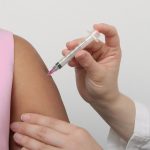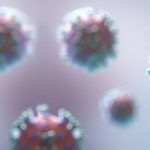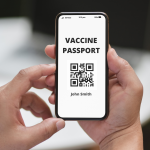COVID-19 Literature Situation Report
COVID-19 Literature Situation Report is a daily (M-F) newsletter that provides a succinct summary of the latest scientific literature related to the COVID-19 pandemic.
The scientific literature on COVID-19 is rapidly evolving and these articles were selected for review based on their relevance to Washington State decision making around COVID-19 response efforts. Included in these Lit Reps are some manuscripts that have been made available online as pre-prints but have not yet undergone peer review. Please be aware of this when reviewing articles included in the Lit Reps.
Click the SUBSCRIBE button in the right-hand column to subscribe to daily reports delivered to your inbox.
June 15, 2021
COVID-19 Literature Situation Report June 15, 2021

The incidence of all-cause mortality among residents of assisted living settings in the US between January and August 2020 was 17% higher compared to the same time period in 2019. Among the 10 states with the highest COVID-19 community spread, during that time period the incidence of all-cause mortality was 24% higher.
June 14, 2021
COVID-19 Literature Situation Report June 14, 2021

A modeling study found that the approach to distribution of SARS-CoV-2 vaccines between February 19 and Match 17, 2021 in the US may have created “vaccine deserts”, defined as areas with localized, geographic barriers to vaccine-associated herd immunity, which the authors suggest may affect population-wide efforts to curb SARS-CoV-2 transmission.
June 11, 2021
COVID-19 Literature Situation Report June 11, 2021

The incidence of multisystem inflammatory syndrome in children (MIS-C) in the US was 5.1 per 100,000 person-months and 316 per 1,000,000 (0.0003%) SARS-CoV-2 infections, based on a retrospective cohort study of young persons under 21 years of age with SARS-CoV-2 infection diagnosed April-June 2020 in 7 US states that identified 248 cases of (MIS-C). The authors conclude that these results indicate MIS-C was a rare complication associated with SARS-CoV-2 during this time period.
June 10, 2021
COVID-19 Literature Situation Report June 10, 2021

The SARS-CoV-2 B.1.1.7 (Alpha) variant accounted for 66% and the P.1 (Gamma) variant accounted for 5% of US infections during April 11-24, 2021, according to population-weighted CDC estimates. The estimated proportion of B.1.1.7 (Alpha) infections in the region including Washington State was 52%.
June 9, 2021
COVID-19 Literature Situation Report June 9, 2021

Elderly residents (n=71, median age 81 years) exhibited delayed and reduced humoral and cellular responses elicited by the Pfizer-BioNTech vaccine compared to a younger cohort of vaccinated healthcare workers (n=123, median age 34 years) in Germany. Neutralizing antibody responses did not reach ≥90% until 4 weeks after the second dose in the older cohort compared to 3 weeks after the first dose in the younger cohort.
June 8, 2021
COVID-19 Literature Situation Report June 8, 2021

A statewide survey of opioid treatment programs (OPTs) in Connecticut found no increases in methadone-involved fatalities relative to other opioid-involved fatalities, despite dramatic changes in practices during the COVID-19 pandemic, including increases in the proportion of patients who received take-home doses.
June 7, 2021
COVID-19 Literature Situation Report June 7, 2021

A study of the impact of Washington State’s exposure notification tool, WA Notify, estimated that the tool averted 6,240 COVID-19 cases and saved 30-120 lives during the first four months of implementation based on an estimated COVID-19 case fatality of 1.4%, a secondary attack rate of 12% and a quarantine effectiveness of 53%.
June 4, 2021
COVID-19 Literature Situation Report June 4, 2021

A study of persons who received one dose of the AstraZeneca COVID-19 vaccine found that receipt of a heterologous boost with the Pfizer-BioNTech vaccine induced significantly higher frequencies of spike-specific CD4 and CD8 T-cells and neutralizing antibodies compared to receipt of a second dose of AstraZeneca, which the authors conclude suggests a heterologous vaccination strategy may be acceptable in persons unable to receive a second dose of AstraZeneca.
June 3, 2021
COVID-19 Literature Situation Report June 3, 2021

Preventive treatment with the monoclonal antibody bamlanivimab reduced the risk of COVID-19 among residents and staff of skilled nursing facilities who were negative for SARS-CoV-2 infection and seronegative at baseline in a randomized trial (8.5% vs 15.2%, OR=0.43 95% CI 0.28-0.68).
June 2, 2021
COVID-19 Literature Situation Report June 2, 2021

A large-scale national survey in the United Kingdom conducted in April 2021 (n=17,611) found vaccine passports could increase hesitancy among those not fully vaccinated, particularly among males, those having a higher degree a vaccine implementation of vaccine, and individuals with lower baseline intent to initiate vaccination (including Black or Black British respondents, younger age groups, and non-English speakers).
Next page